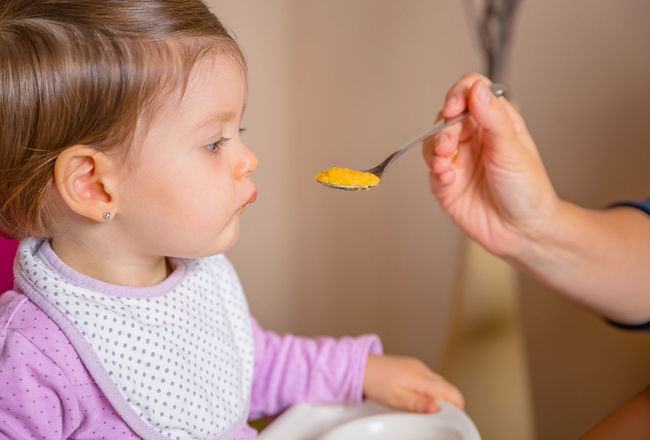
Tests of baby food sold in the United States revealed that 95 percent contain one or more toxic chemicals, including lead, arsenic, mercury, and cadmium.And 1 in 4 of the 168 baby foods tested contained all four heavy metals, according to the report from the group Healthy Babies Bright Futures (HBBF).The amounts of toxins found in baby food were small, but Dr. Philip Landrigan, a pediatrician and director of the Program in Global Public Health and the Common Good in the Schiller Institute for Integrated Science and Society at Boston College, noted, “Arsenic, lead, and other heavy metals are known causes of neurodevelopmental harm.”
What foods are best for baby ?
Parents are also urged to serve a variety of vegetables, which contain a range of nutrients, and avoid relying too much on food types that may contain higher levels of toxins.The advice goes against the old adage about introducing infants to one food at a time, but as Barnett notes, varying the child’s diet can ensure they get “nutrients that can act as a buffer to heavy metal absorption, or help the body eliminate them.”“I also suggest minimizing the amount of root vegetables given to a child based on what researchers found in terms of elevated levels of toxic substances,” she said. “Also, there has never been a healthy reason for giving children juice, so now there is even more of a reason for parents to avoid it altogether.”
The Manufacturing Process
The manufacturing process may also introduce metal contamination into foods.To avoid this problem, some companies have switched to stainless steel equipment.At Little Spoon, products are made by hand and purified under cold water pressure, rather than heat-pasteurized in industrial facilities.Manufacturers have taken other steps to keep environmental toxins out of their products, in part due to a draft guidance from the FDA about acceptable levels of contaminants in baby food.Current arsenic contamination levels in rice cereal and juice are 36 percent and 75 percent less, respectively, than the amounts measured a decade ago
Rice-based foods
Infant rice cereal, rice dishes and rice-based snacks topped the list of most toxic foods for babies.
"These popular baby foods are not only high in inorganic arsenic, the most toxic form of arsenic, but also are nearly always contaminated with all four toxic metals,"Prior research has shown that even low levels of arsenic exposure can impact a baby's neurodevelopment. A 2004 study looked at children in Bangladesh who were exposed to arsenic in drinking water, and it found that they scored significantly lower on intellectual tests. A meta-analysis of studies on the topic found that a 50% increase in arsenic levels in urine would be associated with a 0.4-point decrease in the IQ of children between the ages of 5 and 15.
What can parents do
Pediatrician Tanya Altmann, author of "What to Feed Your Baby" echoes the advice of the American Academy of Pediatrics, which advises parents to offer a wide variety of first foods including grains such as oats, barley, wheat and quinoa.
Best first foods for infants are avocado, pureed veggies, peanut-butter oatmeal and salmon.
"They all provide important nutrients that babies need, help develop their taste buds to prefer healthy food and may decrease food allergies."
She believes meats are a better source of iron and zinc for babies than rice cereal, "so I haven't been recommending rice cereal as a first food for several years."
Action Needed
Urgent action is needed by major baby food companies and the FDA, the report said. While the FDA has been investigating how to reduce exposure and some levels of arsenic in rice and juice are lower than a decade ago, exposure is still too high.
"When FDA acts, companies respond. We need the FDA to use their authority more effectively, and much more quickly, to reduce toxic heavy metals in baby foods," said study author Jane Houlihan, research director for Healthy Babies Better Futures, in a statement.

























No comments:
Post a Comment